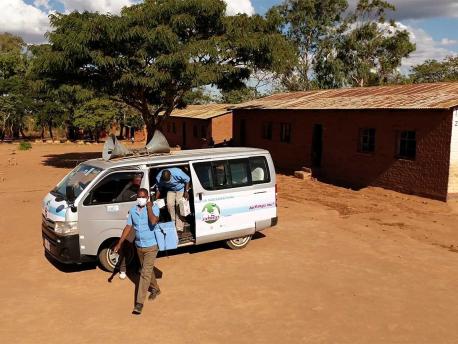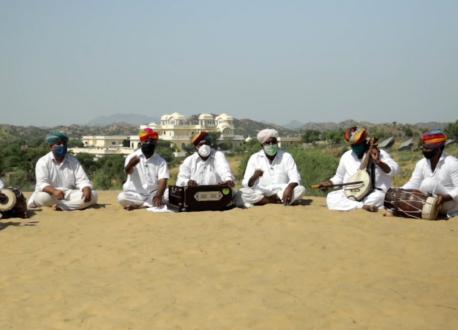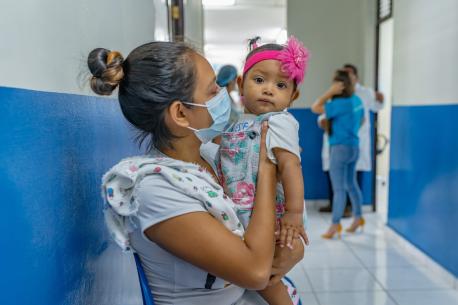
In Malawi, Vaccination Vans Protect Pregnant Women From COVID-19
As the latest COVID-19 variant, Omicron, surges around the world, vaccine inequity is putting vulnerable communities at higher risk, allowing variants to mutate and impact all of us.
Africa has the lowest COVID-19 vaccination rate in the world. But in Malawi, an innovative UNICEF project is increasing vaccine access and vaccine confidence among pregnant women in rural communities.
"Recently, we received a donation of an express vaccination van, which we can use to drive to hard-to-reach communities," says Albert Dzikolatha, a community health worker in central Malawi's Ntchisi District.
Have vaccines, will travel: A UNICEF mobile vaccination van delivers to hard-to-reach communities in central Malawi
"It's important to have the van come to us and give us information, because our village is very far away from the nearest hospital," says expectant mother Eliza Sofasi. "Especially for us pregnant women, it's very far. So when the van comes, we get the information and services quickly."
The project is already seeing results. "While we compare our daily vaccination figures, when vaccinating here at the hospital and the numbers from our outreach, we are vaccinating more people now that we are mobile and using the express van," reports nurse midwife Ness Kapondera. "We are vaccinating more people now than before."
As part of COVAX, the groundbreaking vaccine-sharing initiative, UNICEF is working to deliver vaccine doses equitably worldwide. Support UNICEF's efforts to end the pandemic. Donate today.
Learn more about UNICEF's work in Malawi.
TOP PHOTO: UNICEF mobile vaccination vans deliver COVID-19 vaccines and information to hard-to-reach communities in rural Malawi. © UNICEF Video edited by Tong Su for UNICEF USA.
HOW TO HELP
There are many ways to make a difference
War, famine, poverty, natural disasters — threats to the world's children keep coming. But UNICEF won't stop working to keep children healthy and safe.
UNICEF works in over 190 countries and territories — more places than any other children's organization. UNICEF has the world's largest humanitarian warehouse and, when disaster strikes, can get supplies almost anywhere within 72 hours. Constantly innovating, always advocating for a better world for children, UNICEF works to ensure that every child can grow up healthy, educated, protected and respected.
Would you like to help give all children the opportunity to reach their full potential? There are many ways to get involved.




